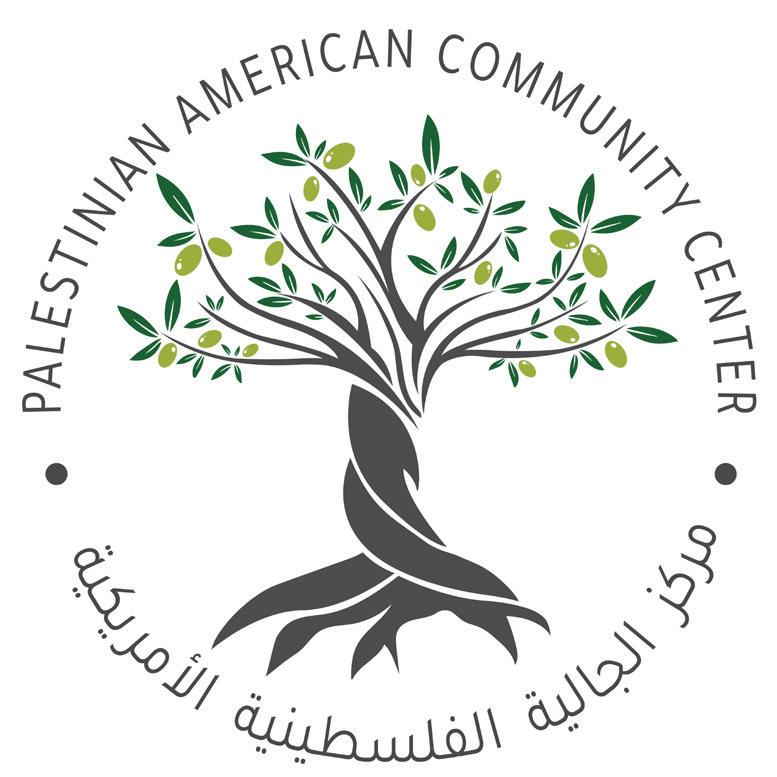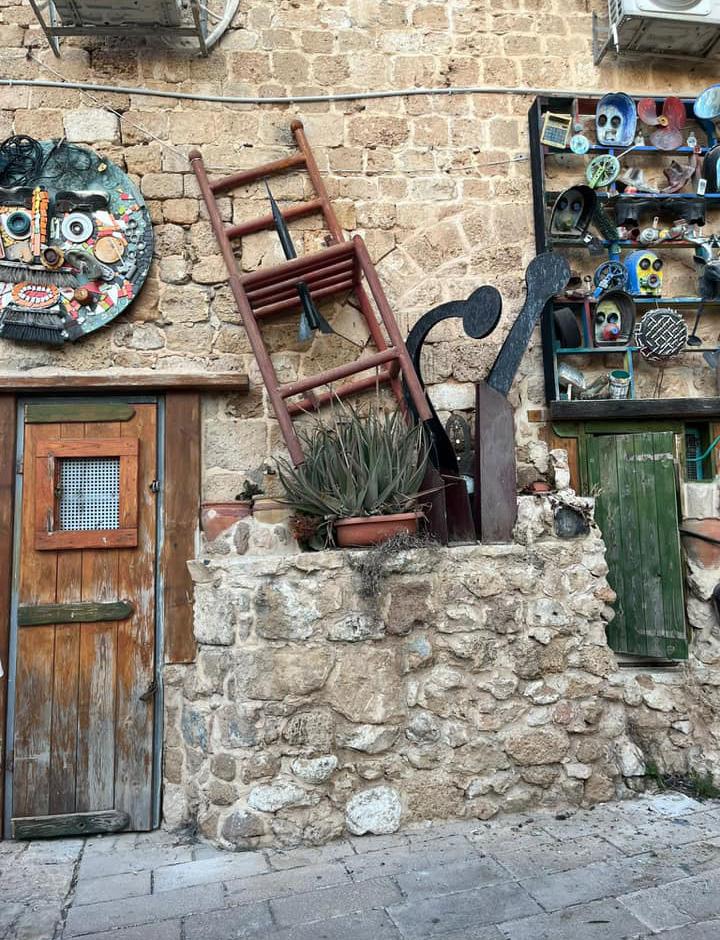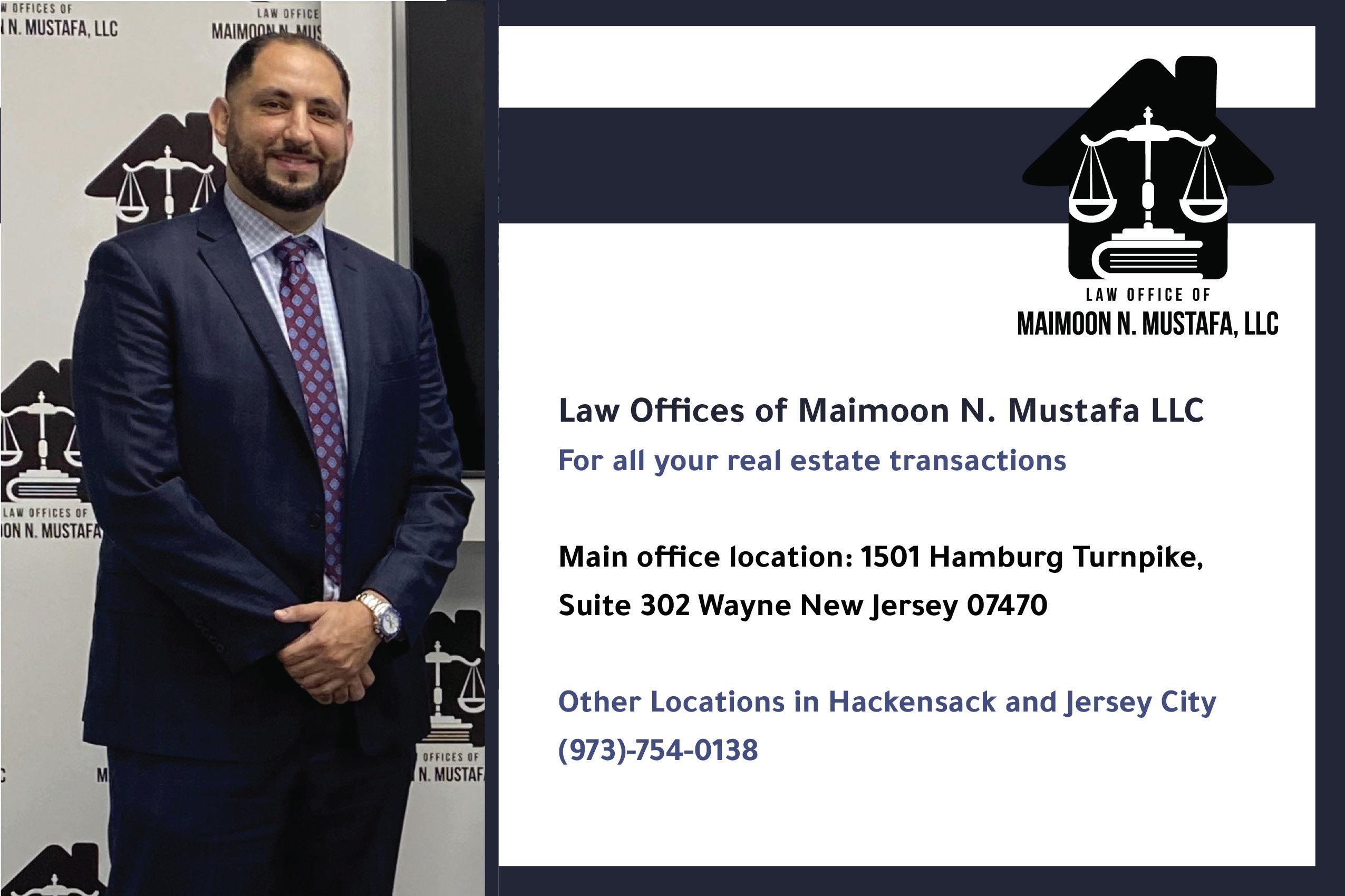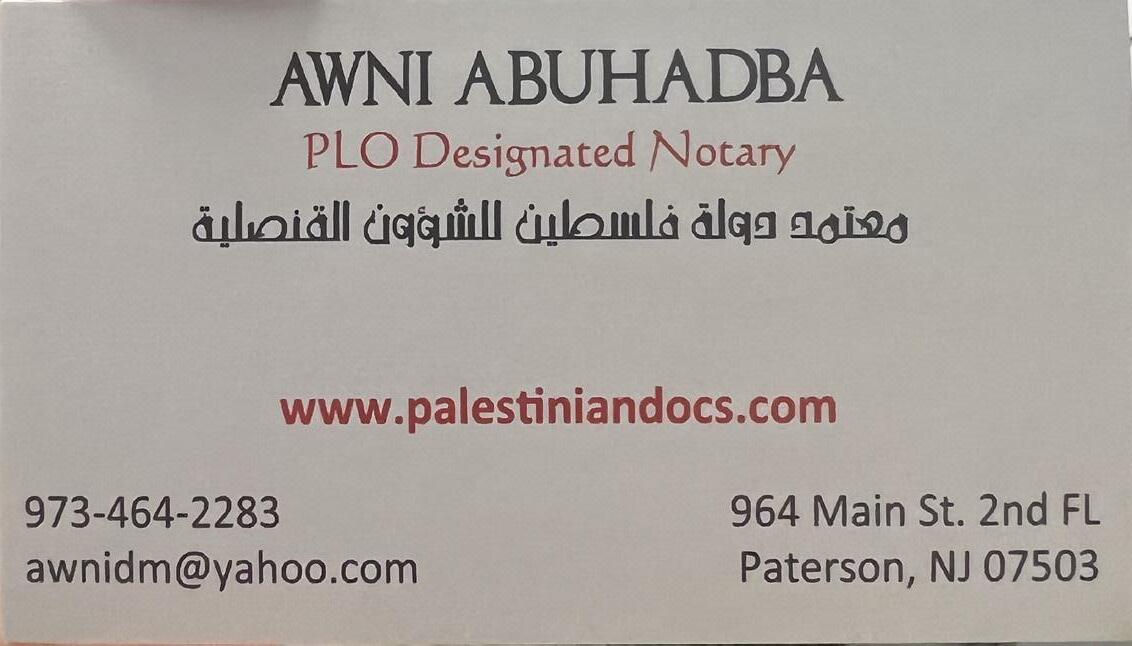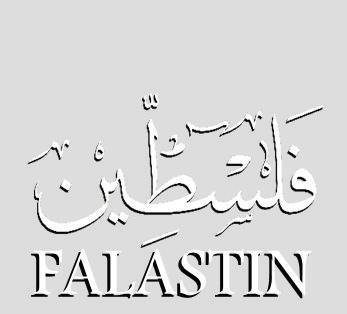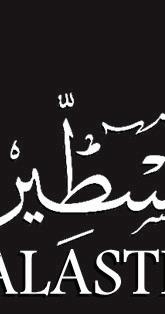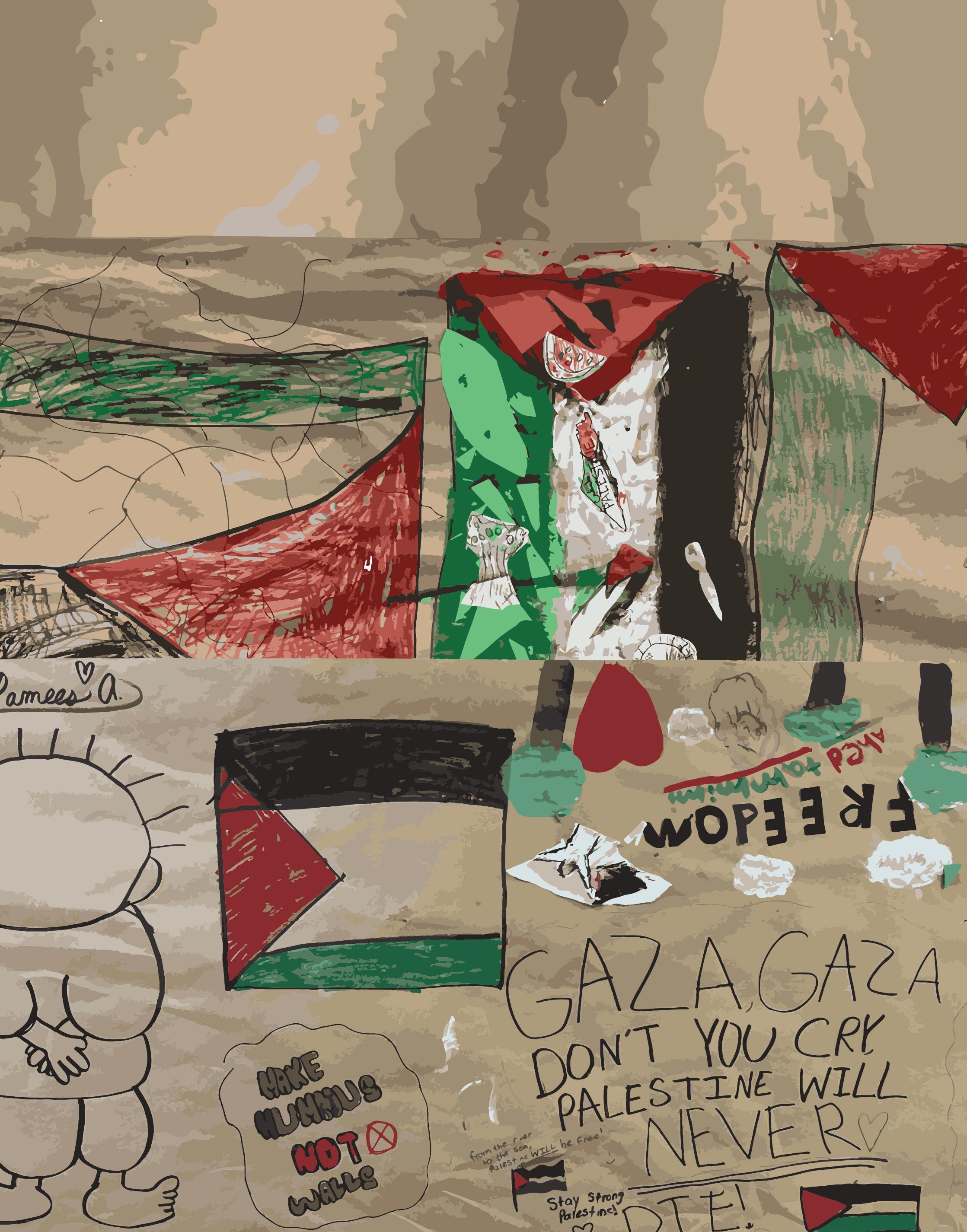

Falastin Staff
Editor in Chief, Reem Farhat


Arabic Editor, Hiba B’irat
Copy Editor, Abire Sabbagh
Layout Editor, Fadia Alagha Advisor, Rania Mustafa



Editor in Chief, Reem Farhat


Arabic Editor, Hiba B’irat
Copy Editor, Abire Sabbagh
Layout Editor, Fadia Alagha Advisor, Rania Mustafa
Jalazone Soccer Camp Reflection
Instilling HOPE in the Next Generation
What Palestine Means To Me
Islam Zidan
Ragheda Hasan
Eman Aboushi and Sarah Elnatshe
Mohammad Albibi
I Miss Palestine
The Love of Palestine Palestine Where I Feel At Home
My Visit to Historic (1948) Palestine
Farid Motan
Sophia Sayegh
Omar Aref
Hannah Hamdan
Diab Mustafa
This summer, PACC engaged in a great amount of meaningful work educating about and representing Palestine, both here in the diaspora and at home in Palestine. Therefore, we wanted this issue of our magazine to highlight and bring you all of these experiences. At PACC, we are driven with a goal of centering our community and centering Palestine in all the work we do. We are excited to show you bits and pieces of our important Palestine Education work over the last couple of months. I hope that you continue to be a part of all our future events and programming.
Here at home (at PACC), we held our annual Holding onto Palestinian Existence course during our summer program. Throughout this course, over 60 youth from the community learned all about Palestinian traditions, culture, and the reality on the ground. They fell in love with Palestine in a new way that fueled their passion to be proud of their Palestinian identity and advocate for Palestine in any way they can. We are honored to be one of the only spaces that provides culturally specific education and fun for the youth of our community. PACC is unique in all we do; what we pride ourselves on the most is our ability to provide a physical and emotional space for our youth to unapologetically be who they are.
Back in Palestine, we continued our education efforts through our Homeland Project day trips. We organized trips for anyone who was already in Palestine and was interested in intensive tours across the homeland. Those who joined got to bask in the beauty of and learn about various Palestinian cities/areas, including Bethlehem, Nablus, Jerusalem, Ras Al Naqoura, Akka, Haifa, and Jerusalem. The goal of the Homeland Project is to reclaim visiting Palestine from a Palestinian perspective and to expose the diaspora to the history and reality of Palestinian cities. Whether within the 1948 area or the West Bank, our trips serve as a reminder that the land was always Palestinian and will always be Palestinian.
This summer, we were also able to make our long time vision of starting a summer soccer coaching program for Palestinian youth a reality with Mahmoud Ihmeidan and Islam Zidan. With their leadership as coaches, we hosted an 8 week soccer program in Jalazone Refugee Camp for 40 youth between the ages of 8 and 14. This summer camp is an example of PACC’s commitment to not only empowering our local community, but spreading the same empowerment, fun, and care to our people in Palestine as well. You can read more about the camp and their experiences as you flip through the magazine.
This issue is a result of the collective work, care, and love of community members of all ages and localities. We are incredibly grateful to everyone who supported our PACC Summer Fun camp here at PACC, from the staff, to the parents, to the kids who participated. We are thankful for everyone at the Jalazone Camp and especially Mahmoud Ihmeidan and Islam Zidan for their dedication to their vision. And of course, we thank every supporter and participant of our Homeland Project for continuing to learn about Palestine. We are also thankful for our sponsors and the PACC Board for supporting each issue of this magazine . Lastly, we thank you, the reader, for supporting Falastin each and every issue. We hope these pieces inspire you to join in our resistance through art and storytelling by sharing your stories with Falastin and invite you to share this magazine with your coworkers and classmates.
With appreciation, Abire Sabbagh on behalf of the entire PACC Staff
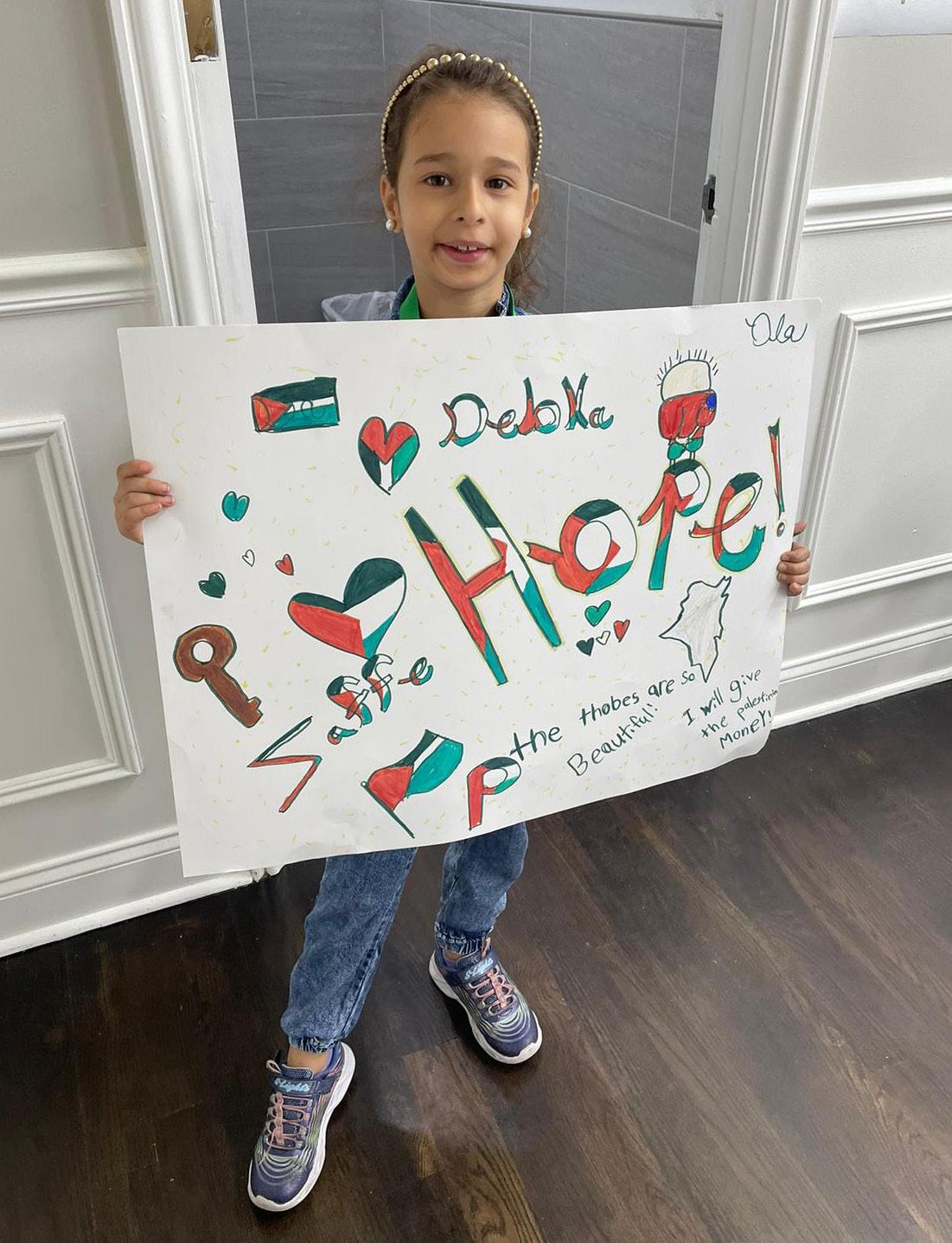
HOPE is a virtual course catered for middle school and high school students to educate them about Palestinian history, culture, traditions, and struggle. By also providing them with a larger, global understanding of social justice issues, we hope that students become passionate about and advocate for Palestine and other oppressed communities. After completing this course, students will be able to:
- Name prominent aspects of Palestinian culture and heritage.
- Identity their role in the Palestinian struggle and other social justice issues through a deep analysis of their identity and placement in the US/diaspora.
- Learn important dates in Palestine’s history and understand the ways in which Israel oppresses Palestinians today.
- Confidently talk about and educate peers about the historical and contemporary reality of the occupation of Palestinian using the right key terms .
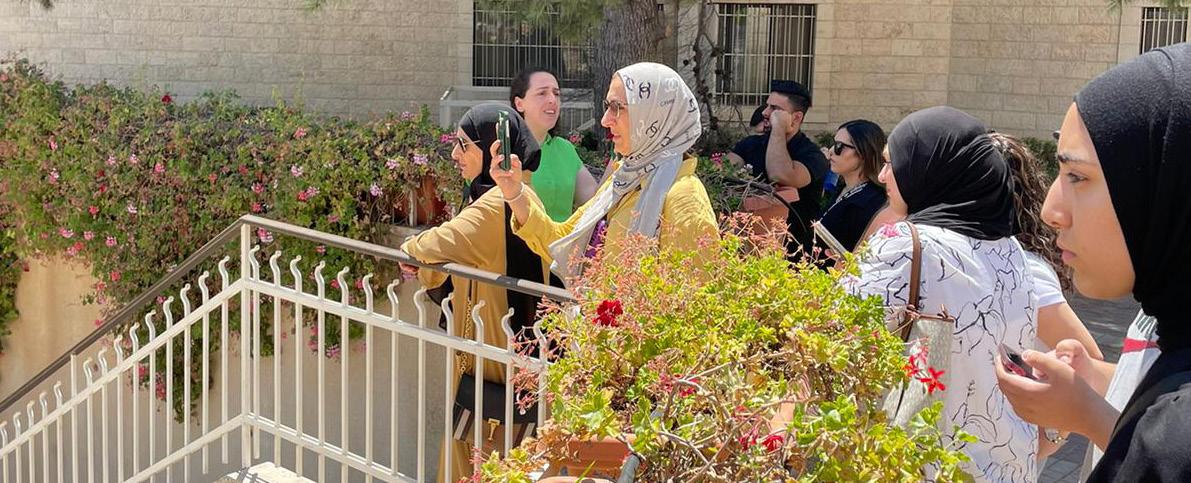
- Connect with and sustain relationships with other youth interested in social justice and Palestine.
PACC offers our one of a kind Homeland Project every summer in an effort to nurture a bond with the Palestinian land, its people, and culture in an authentic way that keeps the name and existence of Palestine alive. The trip is a ten-day journey through the sites and landscapes of Palestine. Participants are offered a once-in-a-lifetime experience to tour the country, explore its lands, delve into its rich history, taste its vibrant culture, and rediscover the roots of Palestine and its people. Participants explore major cities, visit Palestinian refugee camps, engage in some community service and tour historical and cultural sites. They travel to universities and meet with students and professors in thriving Palestinian institutions. Participants also interact with Palestinians from different cultural and religious backgrounds. The journey throughout Palestine provides participants a well-rounded on-the-ground experience they will never forget.
Decorate a Spoon: The Symbol of Palestinian Resilience and Escape
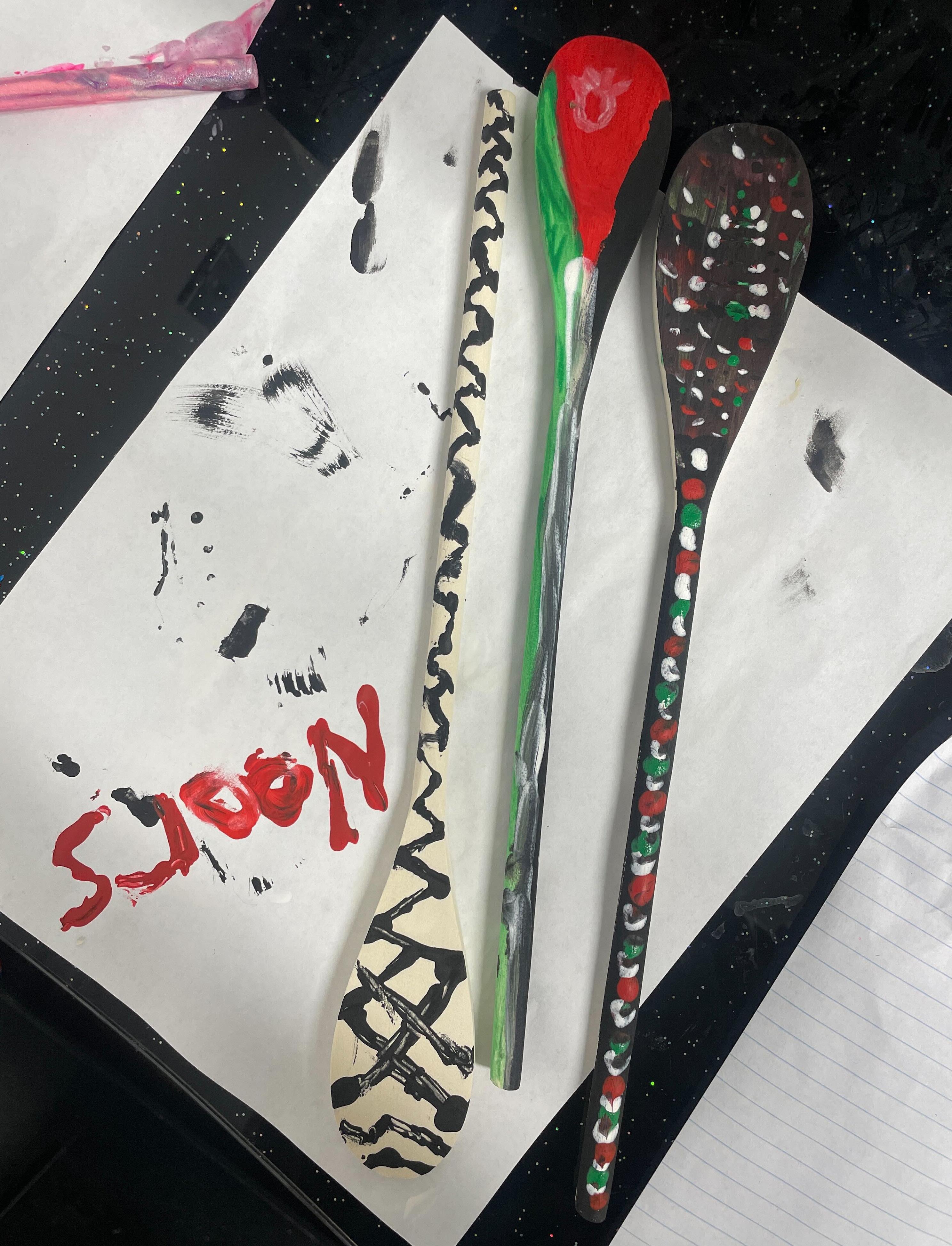
Islam Zidan
After wrapping up a two-week summer training soccer camp in the refugee camp of Al Jalazone, I walked away with a massive amount of emotions. The incredible Al Jalazone and its people left a mark on me. Typically, any sort of soccer training that I have administered was strictly sport focused, where I end the training with feedback and conversations about the advice I had for players. However, this was not the way I ended or started this camp, because working with young athletes in Al Jalazone was beyond just thinking of improvement; it was about thinking of opportunity and connecting with these kind kids and volunteers. I was in the place they called home, the place they found comfort in. They woke up in their homes, went to school during their summer break because of closures and delays of the UNRWA schools that happened earlier in the spring, and then walked up the hill and came straight to our camp. We bonded, laughed, played soccer and I got to see a whole new
Four years ago, Mahmoud Ihmeidan and I decided to dedicate ourselves to the making of this summer soccer camp. We knew the impact it would have on young Palestinian children, and hoped to make a difference in their lives through soccer. Part of my personal motivation comes from being born and raised in Palestine. Ever since I could remember, I used soccer as a way to distract myself from the horrible reality that we Palestinians lived and still live on a daily basis. Growing up, sports in general protected me and sheltered me from the horrors of the occupation and helped ease my time during the 2nd Intifada. I know this is something I share with many Palestinians of my generation who used sports as a coping mechanism during these times. Even though you can’t escape it completely, it helped tremendously because it created a sense of wanting to see the future, a better future. I wanted to shadow my experience of being a child in Palestine to help ease the pressure
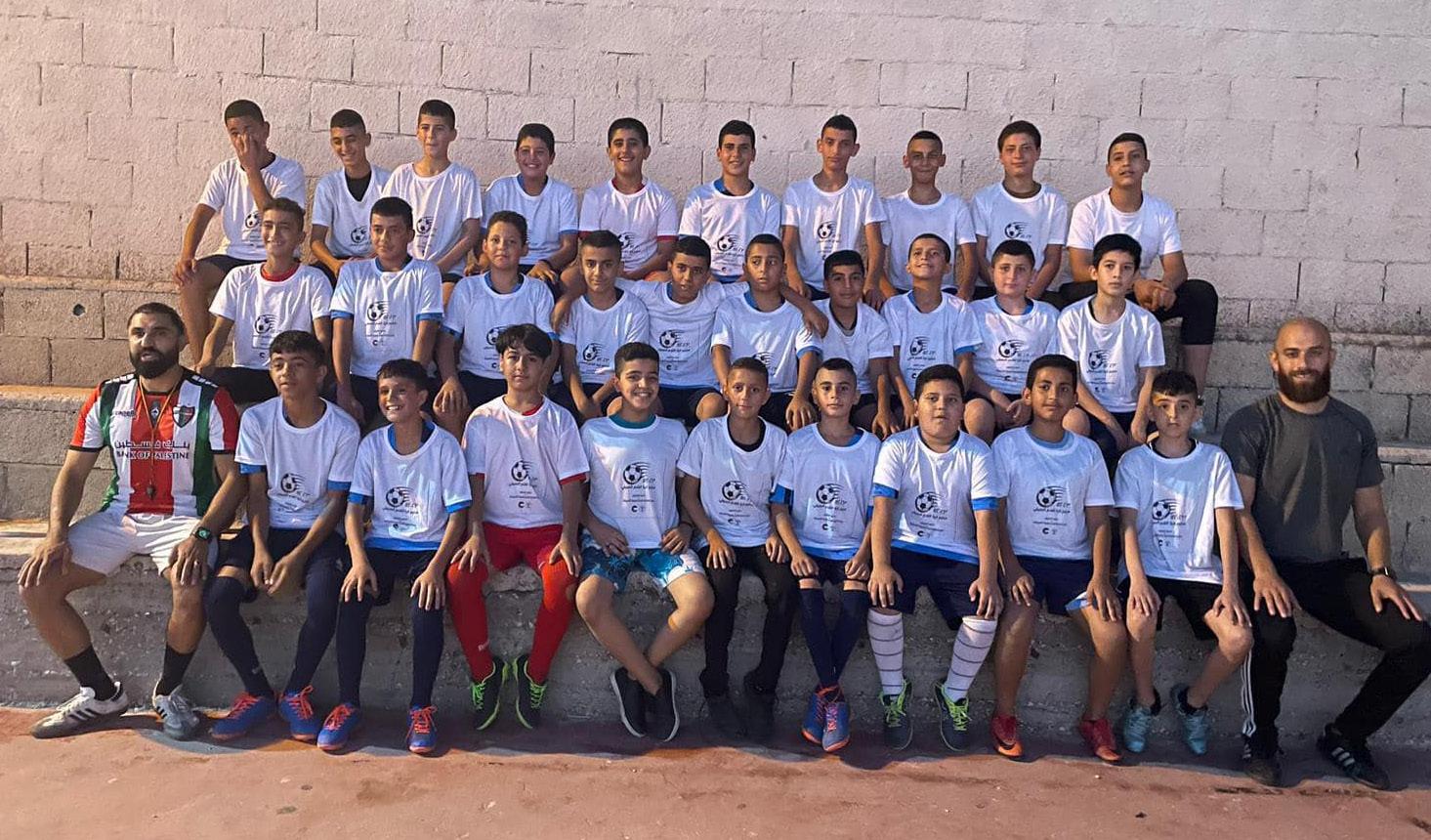 Al Jalazone & PACC Soccer Camp
Al Jalazone & PACC Soccer Camp
and reality in today’s generation by creating a soccer summer camp to help kids pass their summer in a healthy environment. After pitching the idea and with the passion, creativity and commitment of the PACC and its team members, Mahmoud and I were able to make this project become a reality in 2023.
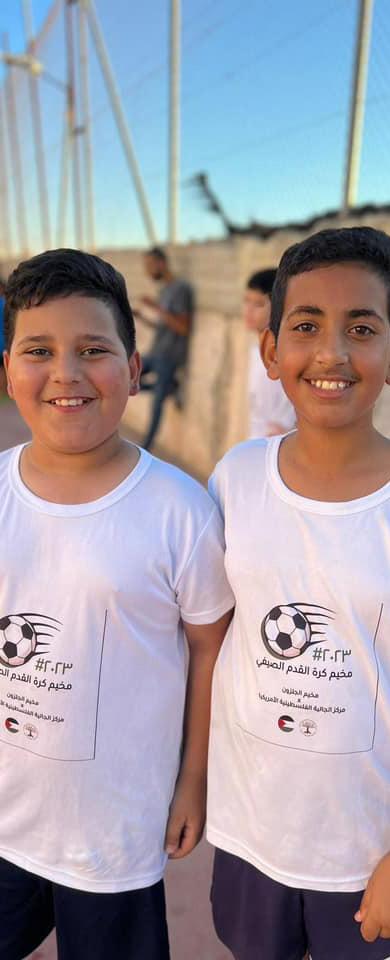
On our first day we discovered that the next two weeks were going to be some of the best and most memorable experiences in our coaching careers, even in our lives. We arrived at the field where the camp was to be held on our first day with the organizers of “Nadi Al Tefel” anxiously waiting for all the participants to arrive. After our introduction we got right to it and all of the sudden me and coach Mahmoud were back to the basics: running drills and training that everyone was engaged in. After the first day finished we instantly felt the love, trust and respect of everyone. Kids leaving the camp happily with a smile waving goodbye telling us they can’t wait to see us tomorrow and that scene kept repeating every day. Every single morning, the excitement to see the young Palestinian campers walk into the field, loud and ready to play, brought me and Mahmoud a joy that no words in the world can describe. Seeing their happiness and youthfulness be alive, it’s all we ever wanted.
On our last day, we stood around our new founded team and began to give our goodbye speech filled with teary eyes and cracked voices. The dedication and bond that we felt for those kids was much bigger than just sharing the love of a sport, it was an internal struggle that only we Palestinians understand and feel for each other no matter where in the world we ended up. We would like to thank our Palestinian American Community Center and its entire team, the volunteers of Nadi Al a Tifel, and everyone who helped and supported this camp in any means possible. It’s an experience of a lifetime, not only for coach Mahmoud and I, but for the youth who walked away with a new sense of confidence. We watched them grow in a span of two weeks, young motivated players who will make positive changes despite their situations.
My name is Ragheda Hasan and this summer I was the HOPE Counselor at PACC’s Summer Fun program. HOPE, which stands for Holding Onto Palestinian Existence, is an educational class on Palestine that the kids attended during their time at this year’s summer camp. In this class, the kids were taught about Palestine’s history, culture, land, people, and occupation through lessons, fun activities, educational videos, and plenty of books. Me and Lamia Abdallah, the HOPE Teacher, worked together in teaching the children about Palestine and gave our all in making sure that they learned, had fun, and enjoyed the class all at the same time.
My favorite part of this program is the kids. Every morning they come in through PACCs front doors with smiles on their faces, all hyped up and excited to learn something new. At times, they surprised me with how much they already know about Palestine, and how they’re still so eager to learn more. I think it’s amazing that PACC offers a class like HOPE for kids during the summer. These children are the next generation of advocates for Palestine. As Palestinians, it is crucial that we pass on our culture, knowledge, and love for Palestine to our youngsters and that is exactly what HOPE does. This class is so important because it instills hope for a free and liberated Palestine into the minds of the next generation who just might be the ones to free Falasteen.
Handala Workbook: Learn about Handala, the Symbol of Palestinian Refugees and the Right of Return
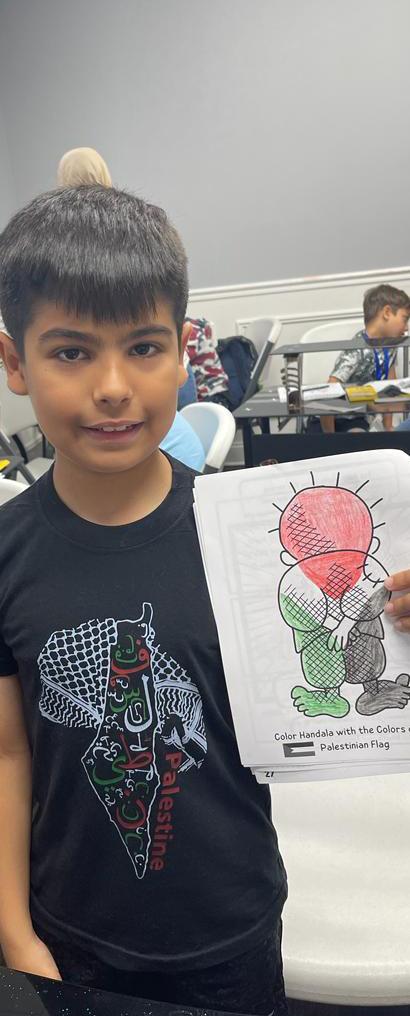
Eman Aboushi and Sarah Elnatshe
Powerful Amazing Life
Enthusiastic Smart
Talented
Incredible Nature
Energetic
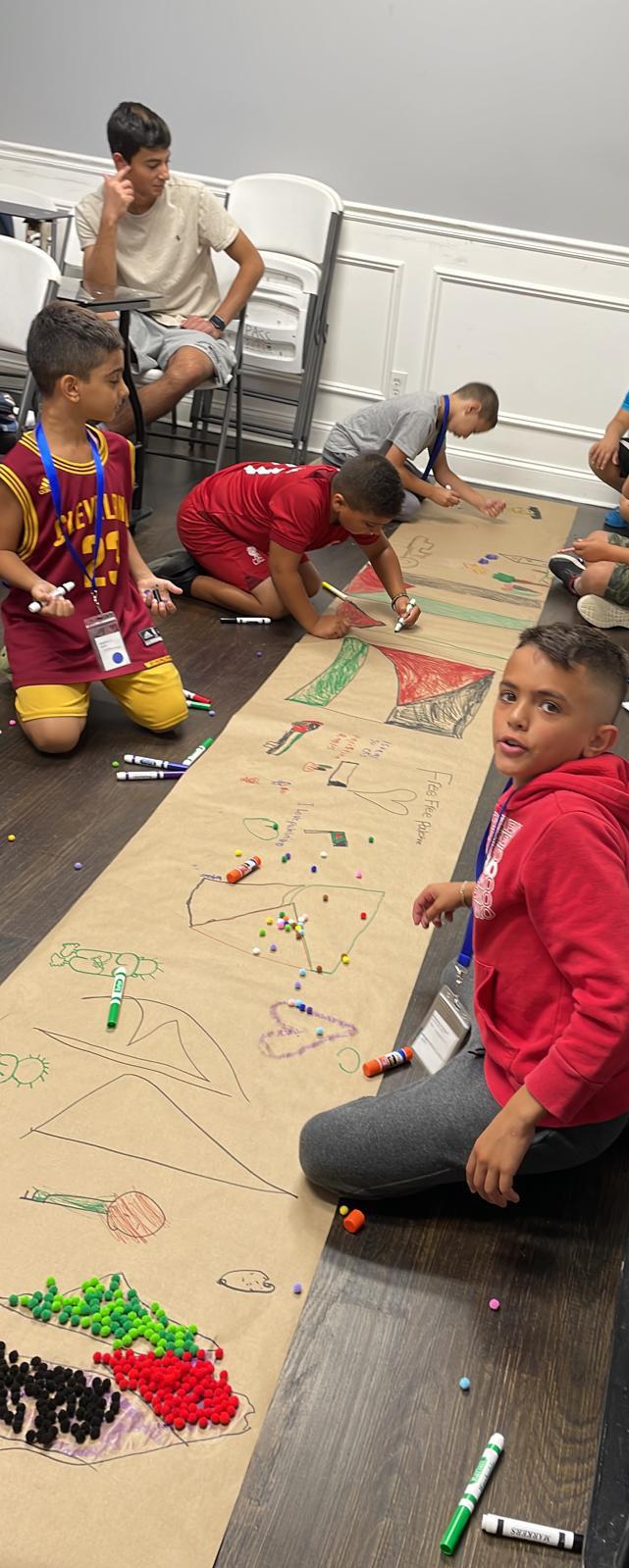
Mohammad Albibi
Palestine is a beautiful place filled with olive oil, various foods, and beautiful sites. You should take a vacation to palestine. You can do many things there: maybe get some henna done with your initial (a traditional temporary tattoo usually done before weddings), watch some authentic Palestinian dabka, eat delicious foods like diwali and shawarma, walk across the many pretty sites Palestine has to offer, and overall just have a good time seeing the culture!
Farid Motan
my
Especially Yafa, the old Yafa, The Palestinian foods, The Kunafa, The mesakhan.
God willing, the Zionists don’t take these too, On top of what they already did.
Mock Apartheid Wall: Add your own Art to the Apartheid Wall to Teach the World about Palestine
Sophia Sayegh
From its beautiful structures to its delicious foods and its rich cultures with thobes, hummus, and Al Aqsa: Palestine brings us together, Palestinian or not. From its dances to designs nothing beats the love of Palestine.
Omar Aref
Palestine that shines
Palestine that rhymes
They are always holding a sign That says “Free Free Palestine”
Red stand for blood line
Green stands for nature
White stands for peace
Black stands for how many years Palestine has suffered
Palestine that has great sunshine
Palestine that rhymes
With a sign that says Free Free Palestine
Hannah Hamdan
I love coming to PACC. It makes me feel at home. I love coming to PACC, where I feel I belong. The people at PACC are my family, though I don’t see them as much.
I love coming to PACC, it makes me feel at home. My name is Hannah Hamdan, and this is why I love coming to PACC
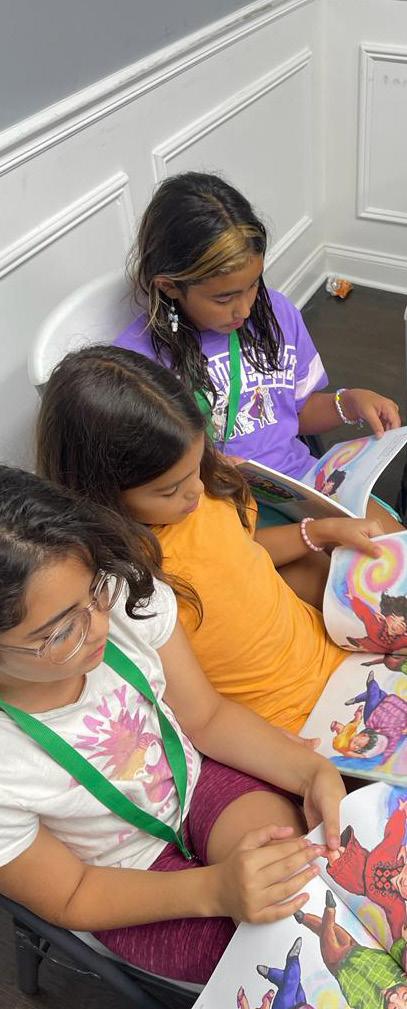
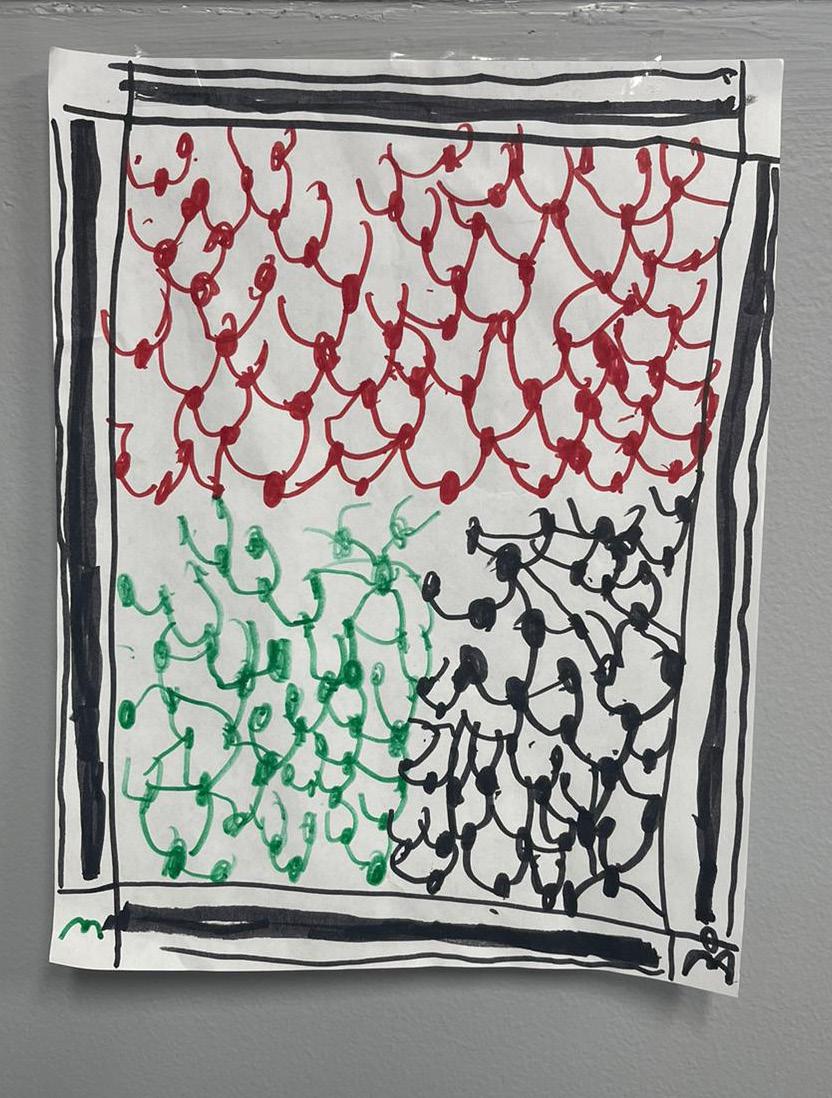
For the first time in over 20 years I was allowed to move freely in all of historic Palestine (or what some call “Israel”). Before July 20th 2023, Palestinian Americans who held the Palestinian ID ( Haweya) were only allowed to visit the West Bank or Gaza (not 1948 Historic Palestine). This change in policy came about due to Israel’s application for the USA Visa Waiver program, which resulted in increased pressure on the U.S. government to only comply with the visa waiver program if the restrictions on Palestinian Americans were lifted.
I have visited Palestine many times, but for the first time this summer, I was able to visit parts of Palestine I had never seen before. I spent three days in Jerusalem and prayed Fajr ( morning prayer) for the first time in al Aqsa Mosque. I spent two days in Nazareth and visited Yafa, Haifa, Aka, Tabaria, Safad, Om Alfahm, Abougush, and Baqa Algharbia.
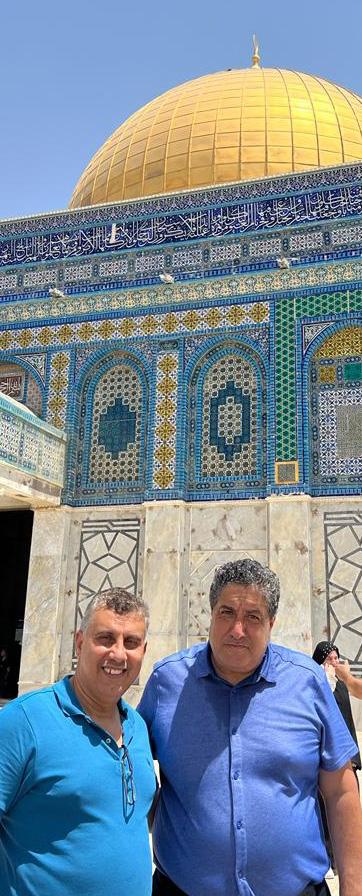
I spent a lot of time visiting and getting to know the areas that I had not visited. I would like to share these eight observations from my visit.
1. We need to pay more attention to and do a better job of connecting with our Palestinian brothers and sisters living in all of historic Palestine, especially those that remained after the Nakba.
2. We need to get to know more about all the villages, towns, and cities that survived the 1948 Nakba in the same way we know and study the ones that were completely erased in 1948.
3. We need to connect, support, and fight for the Palestinians that remained in the land after the Nakba in the same way we fight for the right of return of the refugees that were forced out.
4. Israel treats all of Palestine as one big settler colonial project and has one master plan that they implement everywhere. The similar road infrastructure in both 1948 and the West Bank is a clear example of that.
5. Israeli land grab and settlement building has intensified in all of historic Palestine. Palestinians are restricted to their populated area with very limited possibility of any expansion even on their own land. This is true in both the West Bank and all of historic Palestine.
6. Palestinians in all of historic Palestine are facing many challenges created just for their mere existence on the land. The challenges vary from one area to another but the goal is one: a land without people.
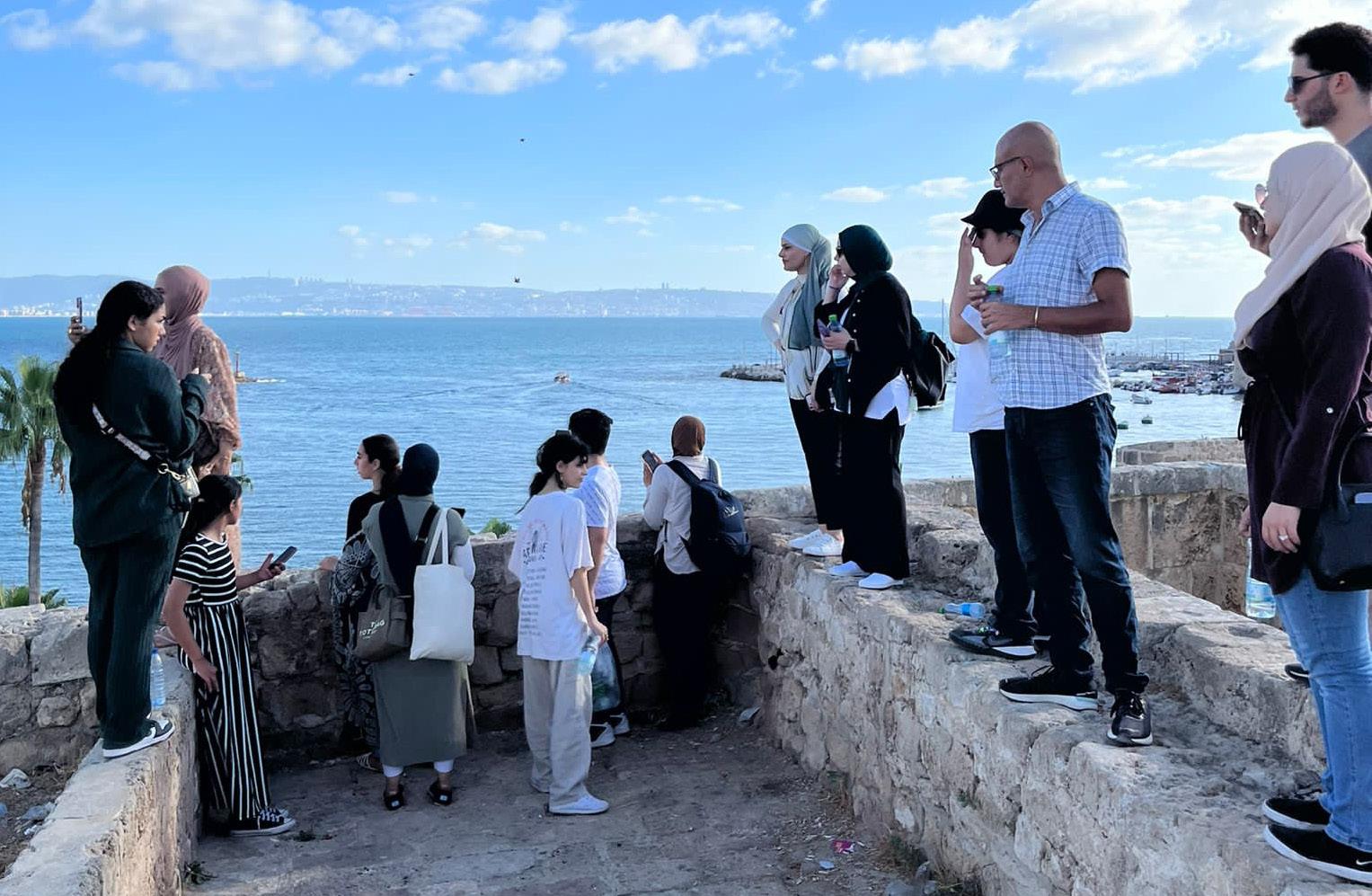
7. Palestinians need to take a good look at where we are and where we are going. We can not stay in
a reactive mode. We need to have an open dialogue and listen to each other and come with a united vision, goal, strategy, and plan of action. We have to remember that we are all Palestinians, not just those living in any area of Palestine or the diaspora.
8. We need to take any chance possible to visit and connect with Palestine. This goes for anyone that is working for the Palestinian cause. We need to differentiate between visiting the prisoner and normalizing with the enemy. We can visit and connect in a way that helps and empowers the Palestinian people and does not represent any normalizing with the enemy.
I want to end with one last critical point: Palestinians and all solidarity movements need to learn to work together and stop harmful canceling culture. No one of us has the magic answer, but together we can and will succeed.
